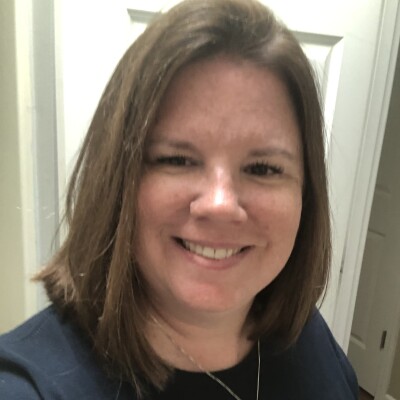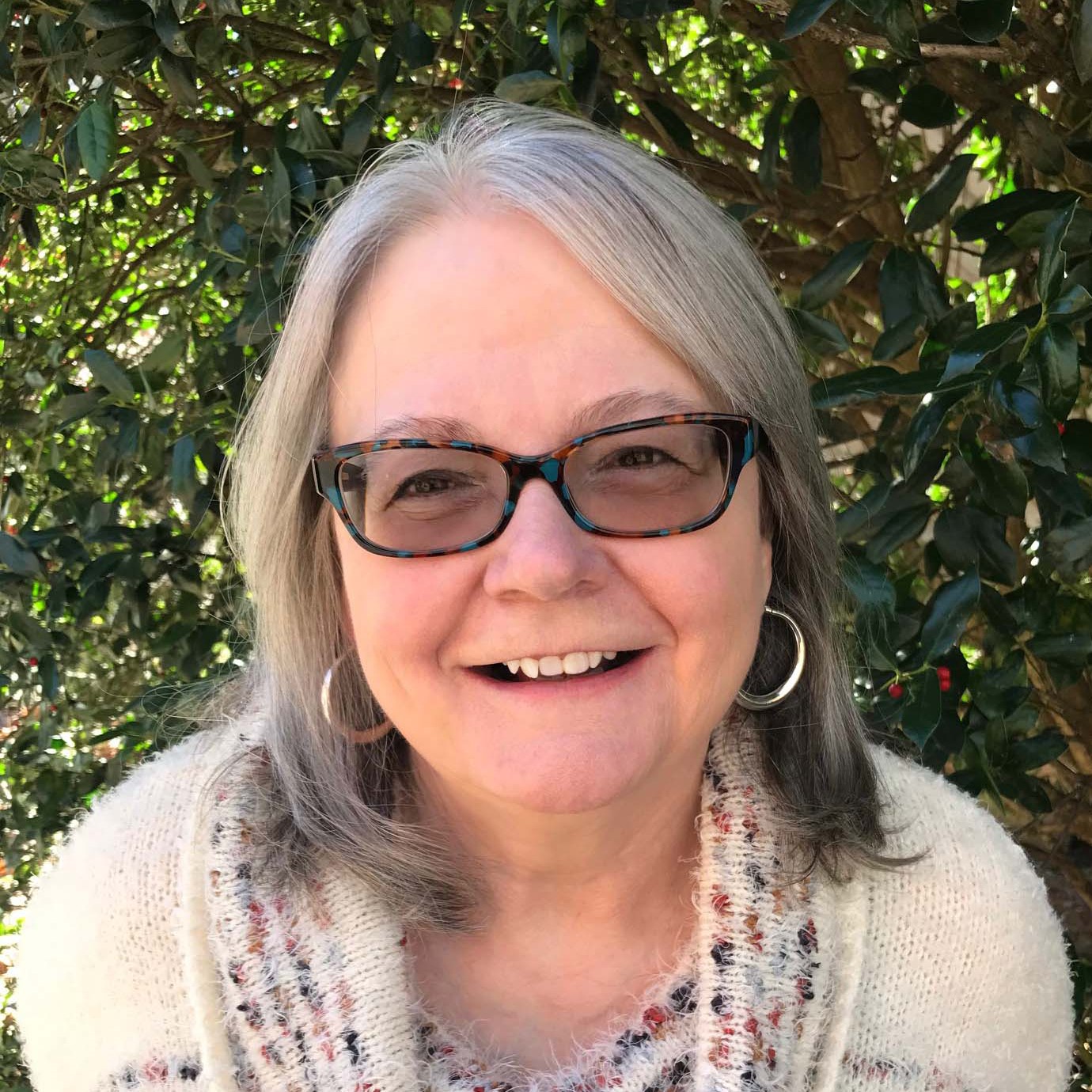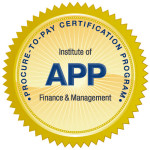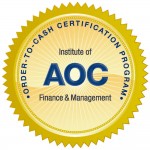
- Membership
- Certification
- Events
- Community
- About
- Help
When Arecka Mather, APM, had to manage her team through a system conversion, she was particularly challenged. As a person who herself struggles with change, her leadership was essential to the success of the project, but she needed to overcome her own anxiety while getting everyone else on board as well.
In this podcast, Arecka talks about her experiences with IOFM Managing Editor Royce Grayson Morse, discussing the obstacles and day-to-day setbacks she and her team encountered during the process, and offering tips for others in similar situations. Maintaining her composure, being brave enough to ask lots of questions, working closely with her crew and being honest about her own challenges were key. Ultimately, teamwork and the ability to laugh throughout the journey brought her organization through a successful transition.
Listen to the podcast now to find out more about managing change when it’s not only tough for the team, but for you as well.

Arecka Mather, APM
Arecka is currently the Procurement and AP Manager at a Health Insurance company, and she has been with her company for 8 years. She has been in the AP industry for 25 years working her way up from an AP Processor to her current role of Manager. She is also certified as an Accredited Payables Manager through IOFM.
She lives in Washington State with her husband. She is the Mom of 2 boys, 18 and 26, and has 2 grandsons. In her spare time, her and her husband enjoy camping in their RV in the Pacific NW and enjoy seeing the world from a cruise ship. She’s also an avid reader and enjoys watching true crime shows.

Royce Grayson Morse
Royce Grayson Morse has been working with IOFM for the past eight years, writing and editing content about Accounts Payable, Accounts Receivable, automation, and industry trends. She has worked on the IOFM Certification Guides and written the associated examinations; edits the annual 1099 and 1042 Master Guides; conducts podcasts; and manages the IOFM.com website content.
Grace Chlosta: Welcome to the IOFM podcast. This is a podcast for accounts payable and accounts receivable professionals who want to stay in the know with current AP and AR trends and ideas. We'll be interviewing professionals in this space on a wide variety of subjects, including automation, artificial intelligence, career growth, compliance, leadership, and much more.
Today we'll be interviewing Erica Mather. Erica is currently the procurement and AP manager at a health insurance company, and she's been working with her company for eight years. She's been in the AP industry for 25 years, working her way up from an AP processor to her current role of manager. She's also certified as an Accredited Payables Manager through IOFM. She lives in Washington State with her husband, is the mom of two boys, 18 and 26, and has two grandsons.
00:00:57
In their spare time, her and her husband enjoy camping in their RV in the Pacific Northwest, and enjoy seeing the world from a cruise ship. She's also an avid reader, and enjoys watching true crime shows.
She'll be interviewed by Royce Grayson Morse, Managing Editor at IOFM. Royce Grayson Morse has been working with IOFM for the past eight years, writing and editing content about accounts payable, accounts receivable, automation, and industry trends. She's worked on the IOFM Certification Guides, and written the associated examinations, edits the annual 1099 and 1042 Master Guides, conducts podcasts, and manages the IOFM.com website content.
Royce Morse: Hi, Erica, and welcome. Thanks for joining me today.
Erica Mather: Thanks so much for having me.
Royce Morse: I'm looking forward to this conversation. So I understand that you fairly recently did a system conversion at your organization. Tell me a little bit about how that all came to pass initially.
00:02:03
Erica Mather: Oh, boy, yes. So we recently went through a financial system conversion, with implementation during 2022 and then go-live in 2023. So I'll just be really transparent. As an individual and a leader, change is really hard for me. In my personal life, it's even harder, but professionally, when you're a leader, we have to get our teams through that change as well.
When this first came about, there was a bit of panic on my end. [laughter] The "Oh, my goodness. How are we going to do this and do our jobs at the same time? Everything's going to fall apart." So you go to the automatic panic moments, and then you pull yourself together and kind of work through it.
00:02:57
It was probably one of the most challenging things I've gone through in my professional career — just the change as a whole, but then also leading the team through that. And I can say we survived with very little injury, so that's great.
Royce Morse: That's awesome. Can you tell me a little bit about — without getting into a lot of specifics — what the conversion involved, in terms of your changes to process?
Erica Mather: Life as we knew it in the finance section of the organization — pretty much everything changed.
Royce Morse: Life as you know it is over, huh?
Erica Mather: Yeah, life as we know it is completely different. Everything from expense reports to reporting to financial statements to — payroll had changed prior years, so they had minimal impact, but everything that we did was different.
Royce Morse: I'm guessing that slowed you down for a bit, while you got back up to speed.
00:04:01
Erica Mather: Oh, goodness. Yeah. I would say we had really great, high hopes at go-live, and then the bottlenecks started happening, especially within the AP space. Conversion never goes as you plan.
Royce Morse: Yeah, for sure. Can you tell me a little bit more about what that bottleneck was and how you resolved it?
Erica Mather: So we pretty quickly identified: we've got some issues. The system wasn't operating as we had thought. We were not the experts that we had thought we were, and so we just pulled together as a team, and just took a breath and said, "Okay, what are our five emergencies today? Where is someone screaming the loudest? Where are you feeling the most heartburn? What's going to keep you awake tonight?"
00:05:00
And so we would sit down as a team every day, look at what we had on our plates, identify those problems, and then start to chunk them away. I think it took about three months of really hard work to get us out of that bottleneck and into a place where the team actually felt like we could breathe a little bit. And partnering with our business — so we've got some partners and great support, and leaning into them and pulling them into our conversations and pulling them into those challenges, saying, "What can you do to help us?" is how we got through that.
Royce Morse: I see. Well, that sounds like it was a bit of an uphill climb. How long did that process take from the time that you started it 'til the time that you were relatively comfortable with the new system?
00:05:59
Erica Mather: Probably a solid five months. So you go in hoping for the best. I very much hope for the best and I always prepare for the worst, and hope that it actually goes the other direction. But probably a solid five, six months before we really felt trust with what we were doing and becoming more of an expert to guide other users in the company, or giving them good advice, and even finding some shortcuts. And being able to communicate that out, saying, "Let's save you some time. Try this."
Royce Morse: That's awesome. Others could benefit from your tough experience. You said something at the very beginning that I found very intriguing, which is that you don't like change. I get that. A lot of people in your role wouldn't necessarily admit that freely, so I commend you for being courageous enough to say that.
00:07:05
Given the fact that you don't like it, I'm guessing that you were empathetic towards your team, because you understood that they might not like it either. So how did you overcome that personally, and how did you lead your team to embrace it in the end?
Erica Mather: Yeah, I think, with me, what you see is what you get. I cannot hide my face, so when I am struggling with something, so you're going to see it, and I'm pretty vulnerable and open, especially if I have trust, so I will usually say, "I am struggling with this. Someone's got to help me get through it."
00:07:44
With my team, I'm also the same way, so I will be open and honest with them to say, "You guys, I am struggling as well. Let's sit down and let's talk about where are we feeling the most…" We say "heartburn" a lot in our area. "Where are we feeling heartburn today? Let's talk about that and see if it's something that we do need to raise a flag on, or is this just our panic because it's unknown?" Most of the time, it's my panic of the unknown to support my team through this challenge, and make sure that we all feel good at the end of the day, and no one's crying — and we're laughing. That's the goal. So getting them to that point and just leaning in and listening, and to have my hand on their back as they go through it.
Royce Morse: Do you think that it actually may have helped some of them that you were empathetic toward their concerns about change because you were as well? I'm guessing that they — I hear a lot about leaders who go in and go, "Yes, we're going to have change. It's going to be wonderful. It's going to be great."
00:08:56
And then the people on the frontlines are like, "This scares me, but I'm afraid to say anything because the boss might get mad." Do you feel like because you, yourself, were open about that, that they were a little more accepting of the challenge and kind of shared in it?
Erica Mather: Yeah, I think the leadership that we have was super supportive, all the way to high, executive leadership. We knew there would be mistakes. We knew there'd be challenges. We knew there'd be problems. Our high leader was very open in saying, "We know it's scary. We know this is something that's putting extra pressure." And I think coming from high leadership and coming down through the levels gave that support as well to people to be more honest, and to raise their hand and say, "I see something wrong here. This doesn't seem right." And giving them that voice to be able to weigh in and then work through those challenges, too, knowing that they had support not just from me as a leader, but from my leader, from their leader, to say, "Great job. Thanks for catching that because at go-live we probably wouldn't have been able to fix that."
00:10:14
So having someone be open as well at that high level, I think, was a great support as we went through that.
Royce Morse: Yeah, absolutely. I would guess that that's very empowering if you feel like everybody up the chain is also feeling it and is supporting you, and is listening if you're saying, "This isn't working right. Something's a problem here."
So five months go by. Tell me, at the end of that five months, how had your perspective changed? Obviously, your process had changed, but your mindset — how had that changed?
00:10:54
Erica Mather: We definitely had days where you felt like it was Groundhog Day: "We just did this. We just had this conversation. I just talked to this person. Why are we having the same conversation?"
We got through the pain point, and then it felt kind of smooth sailing, and then year-end came about, and we're going into uncharted territory again. That is, again, leaning into each other, pulling in support, having really open and honest and vulnerable conversations with people that we work with every day, saying, "We really need your support." And I think being in an organization where you have that trust, we were able to get through that process and maneuver through it.
00:11:47
But, definitely, there were a lot of days were frustration was high, stress was high, but that's where I pull everybody in and say, "Okay, let's take a breath. This work will be here tomorrow. I promise. It'll still be here tomorrow. But what do we need to do to get through today?" And sometimes that's just laughter, and we make it light, and we do work that's not really stressful on our minds, and then we pick it up tomorrow.
Royce Morse: Yeah, that sounds like great advice and very grounding for the team. If you don't stress out, they probably won't stress as much, either. Leading by example.
Now, if you were going to tell somebody else who is approaching a system conversion the way that you did, and they are feeling a little trepidation as well, what advice would you give them to help them get through this process? What's your wisdom that you've taken away from this whole transition?
00:12:57
Erica Mather: Well, do we have about six hours to talk about it? [laughter]
Royce Morse: Maybe not.
Erica Mather: I think it depends on who is guiding this project. I would just say: Ask, ask, ask. Keep asking those questions. Keep showing the processes. We had process documents for our existing, current processes, along with controls we had in place, and to map and mirror those controls in the new system. So having documentation of what your current process is, and then having documentation of future process is critical.
00:13:45
We had some misses, I think, in my area of some of that, which I think would've benefitted us. But being able to ask those questions and never feel uncomfortable. Just ask. What's the worst that's going to happen? Someone says, "We're not going to cover that right now." Or, "That's not your wheelhouse," or just " No."
But being open to the change helps a lot as well. And leaning on others, I think, is a huge positive when you go through something like that, having that support even outside your area. I leaned on some other managers within our organization, outside, to help me: "How do you get through this? What do I do when I feel like I'm going to panic?" Just getting that support wherever you can, I think, would be what I would really say for folks.
00:14:46
Royce Morse: Yeah, I think that's an important point you just made — a couple of things. One is that you talked about your processes. One thing that we say here at IOFM is: If you're going to do some kind of an automation transition, the best thing you can do to get started is to map your existing processes, so A) you know how they work, and B) you know where the bottlenecks are. Because in a lot of cases you're just going to lift and shift those problems to an automated system that is not going to be able to handle it either. So that's step one.
The other one, I think, that's super important from a management standpoint, from a personality standpoint, is being willing to ask for help and say, "I don't know the answer to this. I don't know what to do. Let's talk about it." Rather than coming across like you're the expert and you know it all, because who does in these situations? You're going into unknown waters in a lot of cases.
00:15:50
Being perfectly willing to admit that and to say, "I'm stressed about this. I don't know, but I'm going to ask questions" kind of opens the door for others in that role or who find themselves in that same situation to do that as well, including your team members. "I don't get this. What do I do now? How do we deal with this?" I think that not only helps the process, but I helps the team bond.
Erica Mather: Exactly, yeah. And nobody wants to do a process document. That's, I think, our least favorite thing to do. [laughter] I can say, even now, in the new system, processes change all the time; they have updates. We change. How are we going to do this better? Making time to document those is critical. It's not our favorite, but we need to do it. It just makes life that much easier as we try to navigate this.
00:16:49
Royce Morse: Yeah, I think that that's well said. You have to work the wrinkles out. And then once you do, overall, I would think, it goes a lot smoother. That's not to say you won't run into a problem here and there a bit, but you're not dealing with everything like it's a crisis every single time; you're fixing stuff as you go. That's very sensible advice. Any final words you'd like to give to others who find themselves in this situation?
00:17:18
Erica Mather: Oh, boy. Change is hard. I think there's experts at change, that people could just fly through it. And if you can't, it's okay. Just say it and share, especially with someone that you trust and understands maybe what you're going through. As leaders, we've got to lead that team of ours successfully through whatever we're going through. Every day is a challenge in the world we live in. Things change so rapidly, and we have to be very diligent on what we do. Just be open about it. I can guarantee that I am not the only leader in the world that has a hard time with change, so try to embrace that and see it as a positive rather than maybe a negative.
00:18:10
Royce Morse: Great advice. Thank you so much, Erica. I've enjoyed our conversation, and I'm imagining that our IOFM members will as well.
Erica Mather: Thank you so much for having me.
Grace Chlosta: Thank you so much for listening to the IOFM podcast. Remember to head on over to the Member Forum to discuss today's episode and provide ideas for our next one. And to stay up to date on IOFM's current events, both in-person and virtually, head on over to IOFM.com.
Continuing Education Credits available:
Receive 1 CEU towards IOFM programs:

 Receive 1 CEU towards maintaining any AP and P2P related program through IOFM! These programs are designed to establish standards for the profession and recognize accounts payable and procure-to-pay professionals who, by possessing related work experience and passing a comprehensive exam, have met stringent requirements for mastering the financial operations body of knowledge.
Receive 1 CEU towards maintaining any AP and P2P related program through IOFM! These programs are designed to establish standards for the profession and recognize accounts payable and procure-to-pay professionals who, by possessing related work experience and passing a comprehensive exam, have met stringent requirements for mastering the financial operations body of knowledge.
Continuing Education Credits available:
Receive 1 CEU towards IOFM programs:

 Receive 1 CEU towards maintaining any AR and O2C related program through IOFM! These programs are designed to establish standards for the profession and recognize accounts payable and procure-to-pay professionals who, by possessing related work experience and passing a comprehensive exam, have met stringent requirements for mastering the financial operations body of knowledge.
Receive 1 CEU towards maintaining any AR and O2C related program through IOFM! These programs are designed to establish standards for the profession and recognize accounts payable and procure-to-pay professionals who, by possessing related work experience and passing a comprehensive exam, have met stringent requirements for mastering the financial operations body of knowledge.
What are you waiting for?
